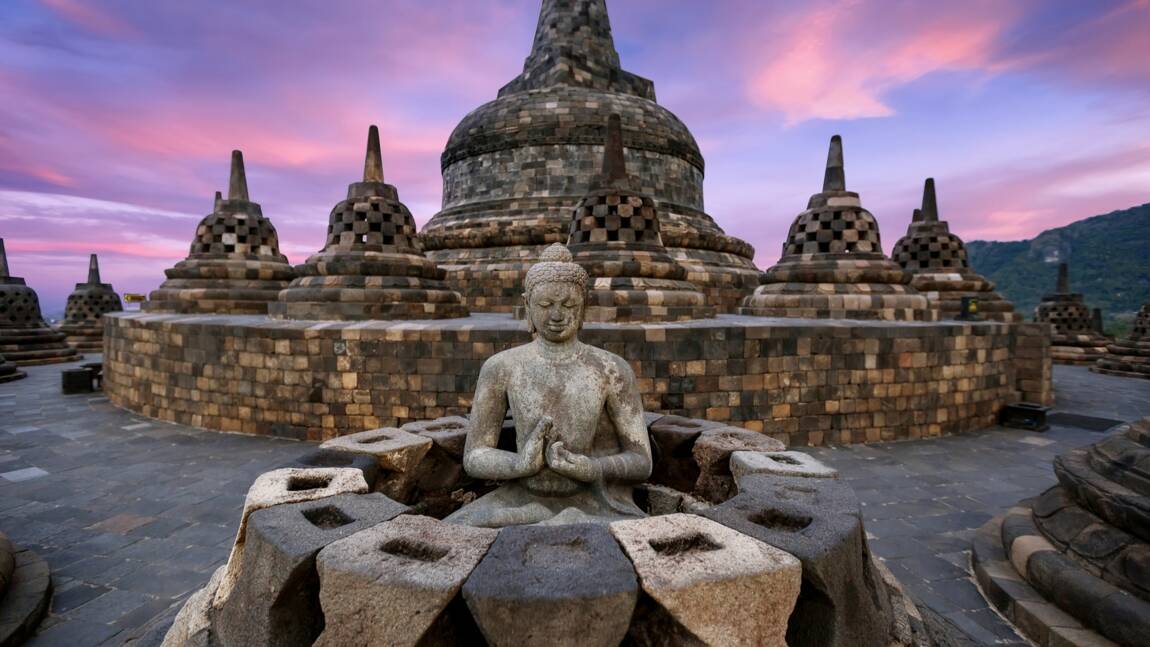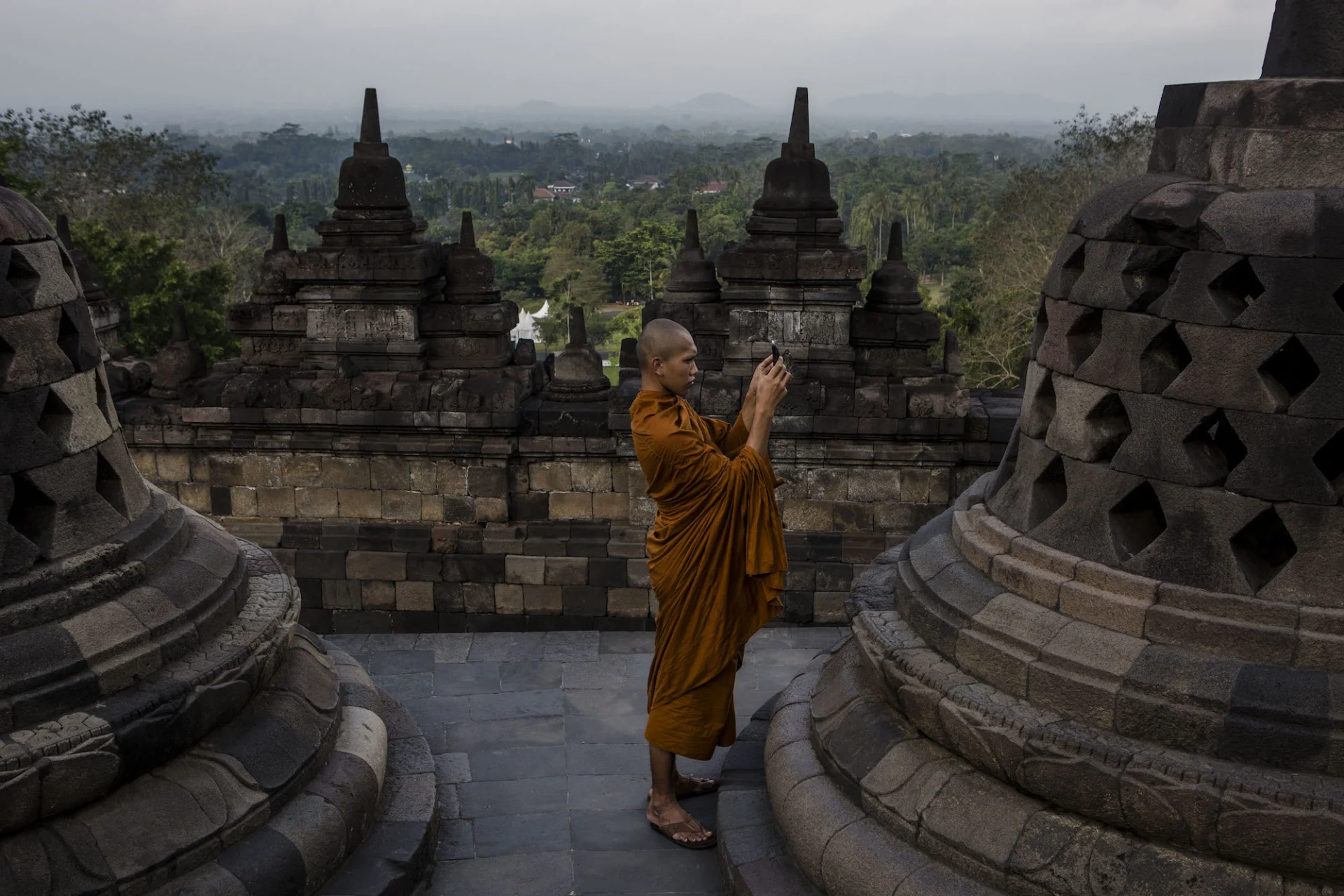It seems that visiting the largest Buddhist temple in the world is about to get expensive.
The Borobudur Temple, which is one of Indonesia's most famous attractions, is set to undergo massive price hikes soon by government authorities in a bid to "preserve the historical and cultural wealth" in the country.
The Coordinating Minister for Maritime Affairs and Investment in Indonesia, Luhut Binsar Pandjitan, announced in a post on his official account on the "Instagram" website, on June 4, that it had been agreed to limit the tourism quota to 1,200 people per day at a cost of $100 for foreign tourists and 750 thousand. rupees ($71) for local tourists.
Currently, tourists who visit the temple pay a flat fee of $25 per person.
According to the new rules, foreigners will have to be accompanied by a local guide at all times while visiting Borobudur.
There were plans to introduce electric buses for tourists to travel around the temple and surrounding areas.
“We are doing this to create new jobs while increasing a sense of belonging in this region so that a sense of responsibility for historical sites continues to thrive in the younger generation in the future,” Luhut explained.
"We are taking these [steps] only in order to preserve the richness of the history and culture of the archipelago," he added.
It is believed that the construction of the Borobudur temple, which is located near the city of Yogyakarta in Central Java Province, Indonesia, dates back to the 9th century and has been preserved through several restorations.
The temple was listed as a UNESCO World Heritage Site in 1982 and attracted tens of thousands of visitors daily before the spread of the coronavirus pandemic.
With nine stacked platforms topped by a large central dome surrounded by statues of Buddha, the temple is an outstanding example of Javanese Buddhist architecture.
Borobudur is often compared to another sprawling religious site, the Angkor Wat temple complex in Cambodia.
The Cambodian temple complex has a different style and history, but it also requires that all foreigners be accompanied by a government-licensed guide, and the price of entry tickets to it periodically rises for non-Cambodians.
The hike in ticket prices for the Borobudur temple proposed by the Indonesian government drew a swift online backlash.
Stuart MacDonald, a co-founder of Travelfish, a travel website specializing in Southeast Asian destinations, emphasized that foreign travelers represented only a "small minority" of visitors to Borobudur.
"The significance of this price hike has come on all of a sudden and it seems a bit understudied," MacDonald said.
MacDonald noted that "Borobudur Temple is a major attraction in Indonesia and is frequently referred to as one of the highlights of Java...So one should be careful not to exaggerate the importance of foreign tourists to the financial viability of Borobudur."
"The most important question may be [whether] foreign tourists will reduce the time they spend in Yogyakarta or remove the city completely from their travel plans," he continued.
Notably, even with the price hikes that took effect in 2017, ticket sales at the Angkor Wat temple complex saw a huge jump that year - reaching more than $100 million and quelling observers' fears that the price hike would discourage foreigners from visiting the site.
But will the Borobudur temple experience the same effect?
"The increase in ticket prices will deter tourists from visiting Borobudur," tour guide Adi Wigastu told CNN, adding that many temple guides have already lost huge amounts of income due to the lack of tourists during the pandemic.
Wigastu explained that many of them are still recovering from the effects of the pandemic, noting that they thought that the reopening of the Borobudur temple would be good news, but the government made matters worse.




Comments
Post a Comment